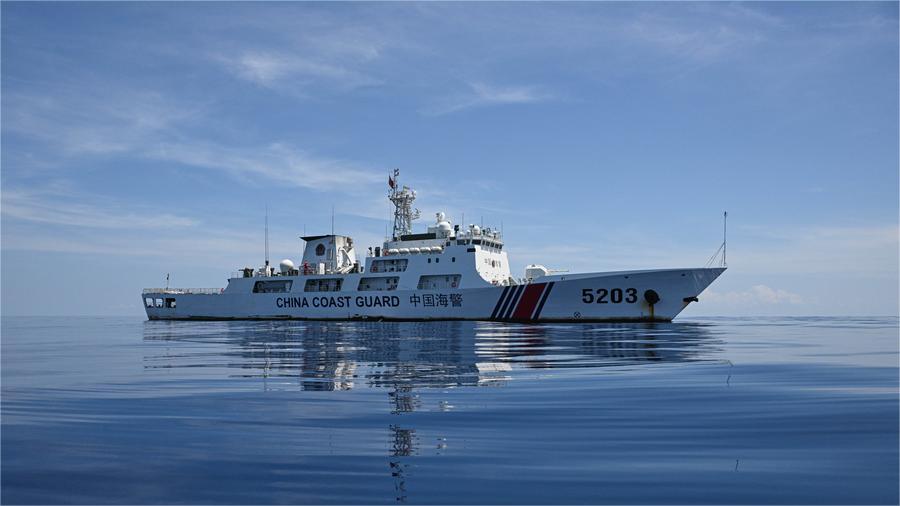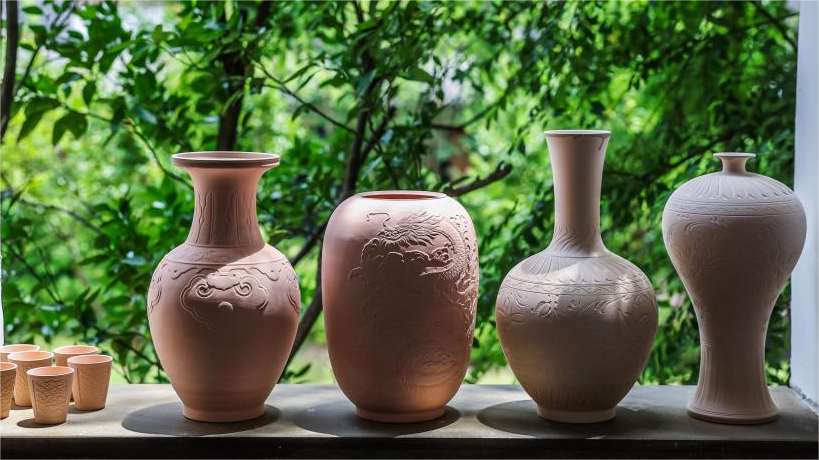Malaysia's deputy PM: Malaysia benefits from China's development
As Malaysia and China celebrated the 50th anniversary of their diplomatic ties on May 31, 2024, Malaysia's Deputy Prime Minister and Minister of Rural and Regional Development Dato' Seri Dr. Ahmad Zahid bin Hamidi highlighted the significant benefits Malaysia has derived from China's development over the past five decades.

Malaysia's Deputy Prime Minister and Minister of Rural and Regional Development Dato' Seri Dr. Ahmad Zahid bin Hamidi receives an interview with People's Daily Online.?
In an exclusive interview with People's Daily Online, Ahmad Zahid lauded the close cooperation in trade, education, and science and technology that has characterized the relationship between China and Malaysia, crediting visionary leaders from both nations for advancing these ties.
"China, the second-largest economy in the world, is an important trading partner of Malaysia and fosters a sound relationship with ASEAN. Malaysia can benefit from China's development, which is a great achievement for the Malaysian government and its people," he added.
Malaysia was among the first countries to respond to China's proposal to develop the Belt and Road Initiative (BRI) and has been one of the primary beneficiaries of early-stage BRI cooperation.
Ahmad Zahid cited the East Coast Rail Link project, being built by a Chinese company, as an example of successful cooperation. He also noted the impressive construction speed of another Chinese company, which can complete a floor in only three days.
"China's experience, encompassing technologies and speed, is highly worthwhile for Malaysian enterprises to learn from. So is that in sectors such as industry, communication, manufacturing, and services," said Ahmad Zahid.
The deputy prime minister also praised the cooperation in the automotive sectors of both nations, highlighting the partnership between Chinese automaker Geely and Malaysian automaker Proton as a significant milestone.
He added that Geely has helped Proton turn losses into profits and achieve technology transfer from China to Malaysia through acquisition.
The two automakers recently launched a new plan to roll out electric vehicles in Malaysia, which Ahmad Zahid described as a "game-changing move."
Similarly, a subsidiary of MARA Corporation, affiliated with the Malaysian Ministry of Rural and Regional Development, has signed cooperation agreements with Chinese companies to help Malaysia transition public transportation from diesel engines to new energy vehicles over the next 10 to 20 years.
Ahmad Zahid commended Chinese-made electric vehicles in Malaysia for offering cost-effective options for local consumers.
Education exchanges have also been a significant aspect of the bilateral relationship. Ahmad Zahid noted that there are currently 5,000 Malaysian students studying in Shanghai.
"Education exchanges will profoundly influence bilateral relations, and the two countries should strengthen exchanges between youth organizations," Ahmad Zahid emphasized.
As chairman of the Technical and Vocational Education and Training (TVET) Council of Malaysia, Ahmad Zahid highlighted the opportunities Chinese vocational education institutions provide for Malaysian students to receive technical and vocational education and training. He expressed the hope that Malaysia can send more students to China to learn new technologies and knowledge.
Ahmad Zahid praised China's efforts in poverty alleviation and rural revitalization, acknowledging the country's significant achievements in these areas.
The deputy minister also expressed admiration for China's initiatives, particularly the development of its central region. "I've carefully read reports about a symposium on further energizing the central region in the new era," he said.
He stated that he believed China's main objective in developing the central region is to eradicate poverty, followed by creating employment opportunities, improving infrastructure, and developing new industries. He also stressed the importance of balancing development between developed and underdeveloped areas.
"I view the attainment of balanced development between these areas as a preventive measure against the numerous challenges that arise from extensive rural-to-urban migration," Ahmad Zahid noted. "Creating job opportunities in rural areas, encouraging the return of the workforce, and reinvesting in rural development are all prudent measures to consider."
Photos
Related Stories
- Chinese premier to visit New Zealand, Australia, Malaysia
- Malaysia-China relationship strong and fruitful: PM
- China, Malaysia to strengthen law-enforcement, security cooperation
- China's police chief meets Malaysia's deputy PM
- Chinese vice premier addresses reception for 50th anniversary of China-Malaysia diplomatic ties
- Charting 50 years of China-Malaysia ties
- Chinese premier meets with Malaysia's deputy PM
- Hong Kong welcomes more Malaysian students: John Lee
- Malaysia's deputy PM to visit China
- Cooperation with China vital for telecom, digital development: Malaysian official
Copyright © 2024 People's Daily Online. All Rights Reserved.









